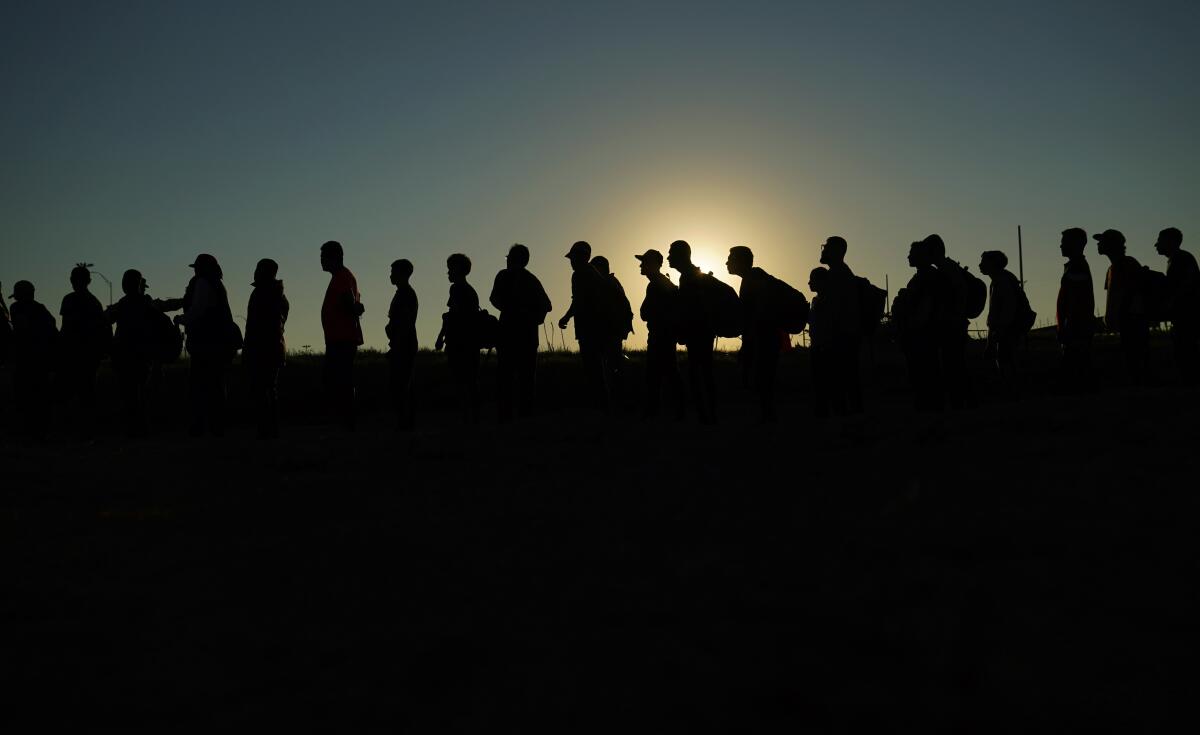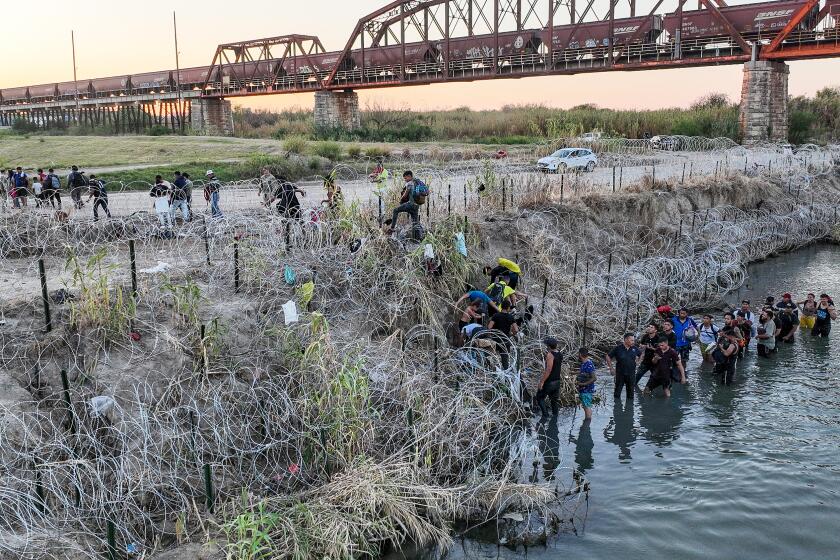Judge blocks Texas law that gives police broad powers to arrest migrants

- Share via
AUSTIN, Texas — A federal judge on Thursday blocked a new Texas law that gives police broad powers to arrest migrants suspected of illegally entering the U.S., dealing a victory to the Biden administration in its feud with Republican Gov. Greg Abbott over immigration enforcement.
The preliminary injunction granted by U.S. District Judge David Ezra pauses a law that was to take effect March 5. Ezra’s move came as both President Biden and his likely Republican challenger in November, Donald Trump, were visiting the southern border in Texas and discussing immigration. Texas is expected to appeal.
Opponents say the Texas measure is the most dramatic attempt by a state to police immigration since a 2010 Arizona law that was derided as the “Show Me Your Papers” bill. The U.S. Supreme Court partially struck down Arizona’s law, but some Texas GOP leaders, who often refer to the migrants’ arrival as an “invasion,” want that ruling to get a second look.
Ezra cited the Constitution’s supremacy clause and previous Supreme Court decisions as factors in his ruling. He said the Texas law would conflict with federal immigration law as well as U.S. foreign relations and treaty obligations.
As a test of federal control of immigration enforcement heads to Supreme Court, Texas cites the late justice in claiming it can arrest migrants who enter without documentation.
Allowing Texas to “permanently supersede federal directives” due to a large influx of migrants would “amount to nullification of federal law and authority — a notion that is antithetical to the Constitution and has been unequivocally rejected by federal courts since the Civil War,” the judge wrote.
Citing the Supreme Court’s decision on the Arizona law, Ezra wrote that the Texas law was preempted. He struck down the claim that large numbers of border crossings constituted an “invasion.”
The lawsuit is among several legal battles between Texas and the Biden administration over how far the state can go to prevent migrants from crossing the border.
The Texas measure would allow state law enforcement officers to arrest people suspected of entering the country illegally. Those arrested could agree to a Texas judge’s order to leave the U.S. or face a misdemeanor charge of entering illegally. Migrants who didn’t leave after being ordered to could be arrested again and charged with a felony.
A federal judge has voiced concerns over a Texas law that would give police broad authority to arrest migrants on charges of illegal entry starting in March.
At a Feb. 15 hearing, Ezra expressed skepticism as the state pleaded its case for the law, known as Senate Bill 4. The judge said he was somewhat sympathetic to state officials’ concerns about the large number of people crossing into the U.S.
Ezra, who was appointed by President Reagan, said he feared the country could become a confederation of states enforcing their own immigration laws.
“That is the same thing the Civil War said you can’t do,” the judge said.
Civil rights groups, who also sued the state, have argued the law could lead to civil rights violations and racial profiling.
Republicans who back the law say it would not target immigrants living in the U.S., because the illegal entry charge has a two-year statute of limitations and would be enforced only along the border with Mexico.
Tensions have remained high between Texas and the Biden administration this year over who may patrol the border, and how.
Other GOP governors have expressed support for Abbott, who has said the federal government is not doing enough to enforce immigration laws.
Texas previously placed a floating border barrier in the Rio Grande and continues to install razor wire along the border. It has also been preventing U.S. Border Patrol agents from accessing an Eagle Pass riverfront park where they had previously processed migrants.
More to Read
Sign up for Essential California
The most important California stories and recommendations in your inbox every morning.
You may occasionally receive promotional content from the Los Angeles Times.















